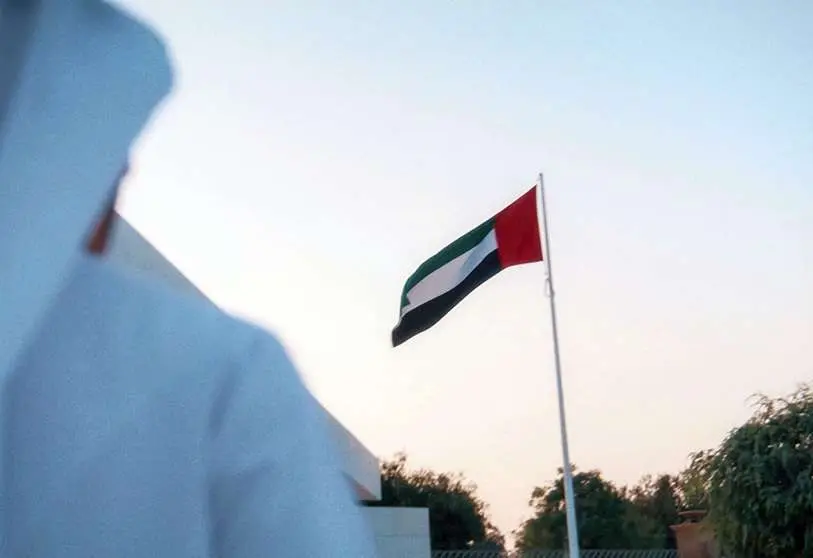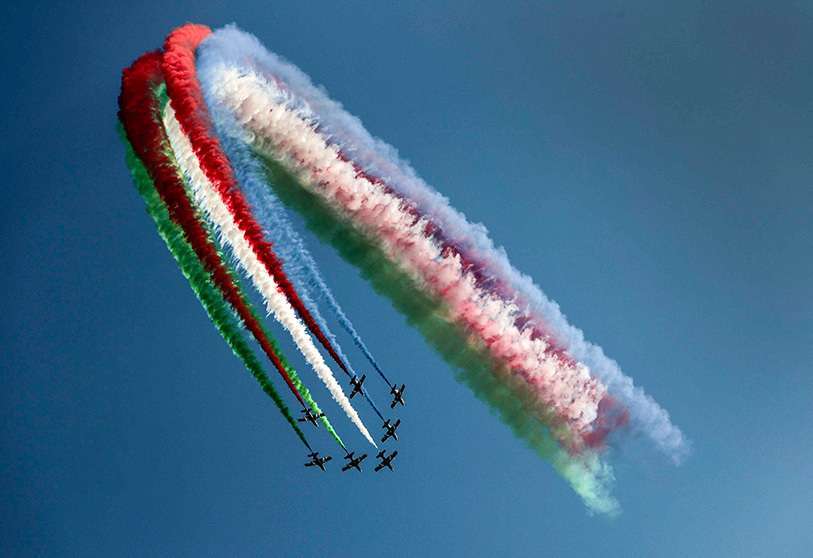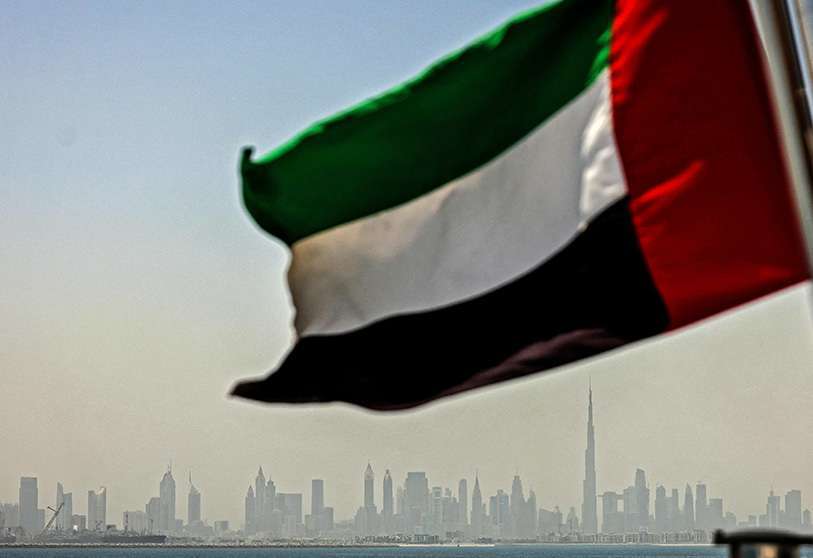Emirates celebrates its 51st Union Day as a major Gulf landmark

The United Arab Emirates (UAE) is celebrating its 51st Union Day. In 1971 the country was founded under the leadership of Zayed bin Sultan al-Nahyan and another year has come to pay homage to his figure and to those of the founding fathers who established a Constitution and sealed the founding act, marking the beginning of a path that has placed the Emirati country at the forefront of the Middle East.
The UAE has established itself as a benchmark in the region thanks to years of work to develop the nation in various fields such as politics, social affairs, economics, technology and culture.
One of the missions that now focuses the nation's efforts is to unite the efforts of the members of the Gulf Cooperation Council (GCC) in order to have a common voice that favours regional progress and to strengthen solidarity among the members of an organisation that was established 41 years ago.

The 51st Union Day is the first bank holidays in the new era of Sheikh Mohammed bin Zayed al-Nahyan, who became president of the UAE on 14 May following the death of Khalifa bin Zayed al-Nahyan at the age of 73. The former national leader was a highly respected and beloved figure within the country for his responsibility for the UAE's modernisation process and the nation's international standing.
After becoming President of the UAE, Mohammed bin Zayed al-Nahyan continued the path set by his late founding father, Sheikh Zayed bin Sultan al-Nahyan, and followed by his late brother, Sheikh Khalifa bin Zayed al-Nahyan, in the process of national development at all levels and as a leader in the Gulf and a country striving for regional unity and cooperation.
In his speech on the occasion of the country's 51st National Day, Mohammed bin Zayed al-Nahyan highlighted the struggle to strengthen Arab and Gulf solidarity, stressing that these countries possess potentials for rapprochement and integration that may not be available to others in other parts of the world.

"In light of rapid regional and international changes, the UAE realises the importance of strengthening Arab partnerships for the benefit of Arab peoples and contributes to the investment of its own resources and capabilities for development that benefits all," the Emirati president said.
"The transformations in the world in recent years have confirmed the importance of strengthening all aspects of regional cooperation between countries belonging to a region or geographical area, such as the Arab countries in general or the countries of the Cooperation Council for the Arab States of the Gulf in particular, as these countries have the potential for convergence and integration that may not be available to others in other regions of the world. The UAE is working in cooperation with its brothers to promote Arab integration on a new basis that is effective and realistic and based on common interests and stems from economic and development cooperation, and aims, first and foremost, at the prosperity and development of the people," Mohammed bin Zayed stressed, as reported by media outlets such as the Emirati news agency WAM and Al-Ain News.
Along these lines, the Emirati president has recently held meetings and conversations at the highest level with the main leaders of relevant Gulf States, such as Tamim bin Hamed al-Thani, emir of Qatar, and Mohammed bin Salman bin Abdulaziz al-Saud, crown prince and recently appointed Prime Minister of Saudi Arabia, on the occasion of important events such as the current football World Cup being held in Qatar and the last G20 summit in Indonesia, where issues relevant to the progress and common security of the 20 most important countries in the world were addressed, at a time of global political uncertainty and instability marked by the current economic crisis, energy supply problems and all the inconveniences arising from the Russian invasion of Ukraine.

The United Arab Emirates has been playing a mediating role for some time now in an attempt to get things back on track and avoid an escalation of tensions. It is trying to bring together the interests of the Western bloc on the one hand, led by the United States and the main European countries, and those of other poles of power on the planet that also have their own objectives, such as the Middle East region itself or certain nations like China or Russia itself, which is part of the OPEC+ group comprising the main oil-exporting countries and associated nations, which have had to make political and economic trade-offs in order to match the price levels of crude oil (so important now due to the recent world energy crisis) and the political struggles that revolve mainly around the political and economic sanctions imposed on Russia by the West due to the war in Ukraine.
It is against this backdrop of instability and uncertainty that the latest major political moves within the GCC to join forces and promote cooperation have been taking place, such as those mentioned above between the top leaders of the Emirates, Saudi Arabia and Qatar.
Mohammed bin Zayed al-Nahyan also visited Bahrain to meet with King Hamad bin Isa al-Khalifa and the Sultanate of Oman for talks with Omani Sultan Haitham bin Tariq. He also had contacts with Sheikh Mishaal al-Ahmad al-Jaber al-Sabah, Crown Prince of Kuwait, on the margins of the last Jeddah summit in Saudi Arabia to discuss security and development issues. The aim was also to work along the same lines of economic and political cooperation and the fight to strengthen security and combat fundamentalist terrorism.
All this demonstrates the fraternal relations and joint efforts that mark the commitment of the Emirates to the rest of the Arab nations of the Gulf. The Gulf Cooperation Council was established in the UAE capital, Abu Dhabi, on 25 May 1981. The first Gulf Summit was held at the invitation of Sheikh Zayed bin Sultan al-Nahyan, founder of the UAE, in Abu Dhabi in May 1981, during which it was formally agreed to establish the Cooperation Council for the Arab States of the Gulf.

In addition to its important international and regional political position, the UAE continues to make progress in various fields such as economics and technology. The country continues to look to the future and is fully committed to the development of new technologies and even to progress in its space programme, with recent missions as important as the Mars mission with the Hope probe and the moon mission with the Rashid rover. This also highlights the pioneering experience in the field of space science concerning Arab and Gulf countries, through the initiative "Arab Group for Space Cooperation" launched by Emirates in 2019 and based in Abu Dhabi, and aimed at encouraging and activating Arab cooperation in space activities. The group includes 14 Arab countries, including five Gulf countries: UAE, Saudi Arabia, Bahrain, Kuwait, Oman and the United Arab Emirates.
In economic matters, the UAE continues to work on national economic diversification so as not to depend exclusively on hydrocarbons and to promote other sectors that could enable national development, such as tourism, technology, culture, renewable energies and even sports. The Emirates has long been committed to the energy industry and the transition to other more environmentally friendly energy sources, with examples such as the heavy investment in its own renewable projects or the Barakah nuclear power plant in Abu Dhabi; and, at the international level, with the "Etihad 7" project, which consists of financing renewable energy projects in Africa. The Emirate also promotes important cultural fairs and events such as the Sharjah Book Fair and the Abu Dhabi International Hunting and Horseriding Exhibition (ADIHEX) and is committed to promoting connections between the different emirates of the country and the rest of the world in order to promote the tourism industry, with the great example of the last Dubai World Expo.

Mohammed bin Zayed al-Nahyan took up the baton of the legacy offered by his predecessors and undoubtedly continues to apply the same recipe of national development and progress in all areas to ensure that the Emirates continues to progress at the same level in the next 50 years, as the Emirati president made clear in his last speech on the occasion of the 51st Union Day.










